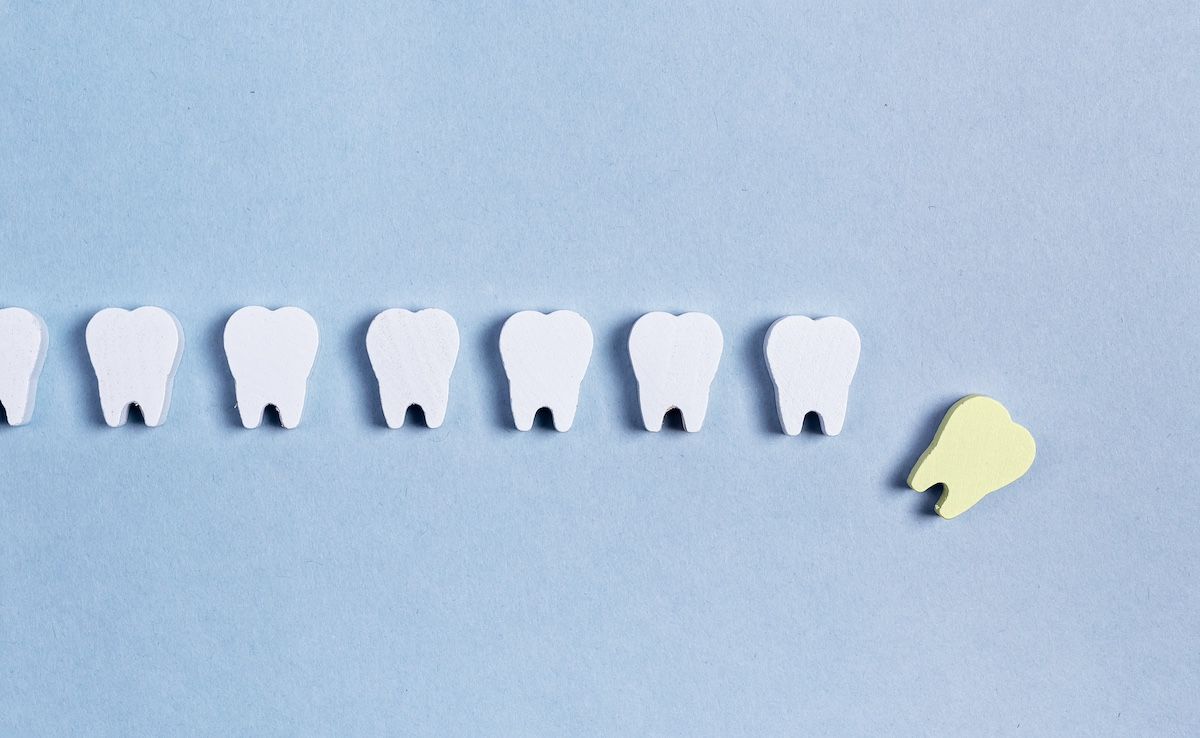- Center on Health Equity & Access
- Clinical
- Health Care Cost
- Health Care Delivery
- Insurance
- Policy
- Technology
- Value-Based Care
Edentulism May Heighten Sleep Apnea Risk
A systematic review has found a potential link between edentulism and sleep apnea risk, although the authors said differences in study designs prohibited a meta-analysis.
Anatomical alterations associated with tooth loss, also known as edentulism, appear to increase the risk of obstructive sleep apnea (OSA), according to a new systematic review.1The report, which was published in Journal of Prosthodontics, found unanimous agreement on the link, although the impact of remedies such as dentures remains unclear.
Left untreated, and often undiagnosed, OSA can lead to several concerning comorbidities, including hypertension, diabetes, and impaired cognitive function, noted the study authors. A study published in 2022 found that the high rate of undiagnosed OSA is tied to a lack of coordination of care, negative perceptions about the disease, and a belief among patients that their OSA symptoms are not serious enough to warrant medical care.2
The authors noted that although most sleep-related disorders are treated by medical doctors, some sleep issues can be related to the dental field.
“Oral care may be influenced by OSA and there have already been studies concerning the association of OSA with increased prevalence of periodontal disease, as well as with tooth wear, orofacial pain, and xerostomia,” they wrote.
Explaining their findings, the authors of this study noted that although most sleep-related disorders are treated by medical doctors, some sleep issues can be related to the dental field. | Image Credit: © valiantsin-stock.adobe.com

The link between edentulism and OSA has been studied for a number of years, in part because complete tooth loss has already been associated with diseases including periodontitis, oral cancer, and trauma, they noted. Moreover, the loss of teeth can spark anatomical changes affecting the size and function of the upper airway.
“Changes that are also frequently observed include loss of the vertical dimension of occlusion, mandibular rotation, and reduction of the lower face height,” they wrote. “Increased collapsibility of the pharynx can act as a causal factor for OSA.”
They wanted to better understand what the existing scientific literature says about links between OSA and edentulism, and see what conclusions—if any—could be drawn, so they searched a number of scientific databases for relevant studies investigating potential links between OSA and edentulism. They found 23 such studies, published between from 1999 to 2023, all of which were clinical studies and 6 of which were randomized controlled trials.
The studies were unanimous in concluding that there is an association between edentulism and OSA, the authors found. They suggest that Apnea-Hypopnea Index scores were 2 to 3 times higher in people with edentulism than people with teeth. However, the authors cautioned that there were relatively few data directly comparing edentulous and dentate patients, which they said indicates a need for more research into the question. They also said differences in study methods, OSA diagnostic tools, and outcome criteria made it impossible to do a meta-analysis.
Another question that has been evaluated is the impact of dentures on OSA risk. The existing research is inconclusive, they noted, with some studies suggesting that dentures can increase the risk of OSA and other studies finding that dentures decrease the risk. A more recent study that looked specifically at implant-supported mandibular dentures, however, found they can improve airway space and symptoms in people with mild to moderate OSA.3
The authors said the data show a “plausible” association between edentulism and OSA, which they said underscores the importance of prosthodontic management and the prevention of tooth loss.
“However, clinical data are limited and heterogenous, so more clinical studies should be encouraged for more robust conclusions,” they wrote.
References
1. Pachiou A, Roulias P, Steiropoulos P, Halazonetis DJ, Kourtis S. Association of edentulism and obstructive sleep apnea: a systematic review. J Prosthodont. Published online November 13, 2024. doi:10.1111/jopr.13981
2. Ye L, Li W, Willis DG. Facilitators and barriers to getting obstructive sleep apnea diagnosed: perspectives from patients and their partners. J Clin Sleep Med. 2022;18(3):835-841. doi:10.5664/jcsm.9738
3. Krishnamurthy P, Maheswari U, Mohamed K. Effect of prosthetic rehabilitation on airway space in edentulous patients with obstructive sleep apnea- a preliminary observational study. J Dent (Shiraz). 2023;24(4):382-388. doi:10.30476/dentjods.2022.95716.1886
